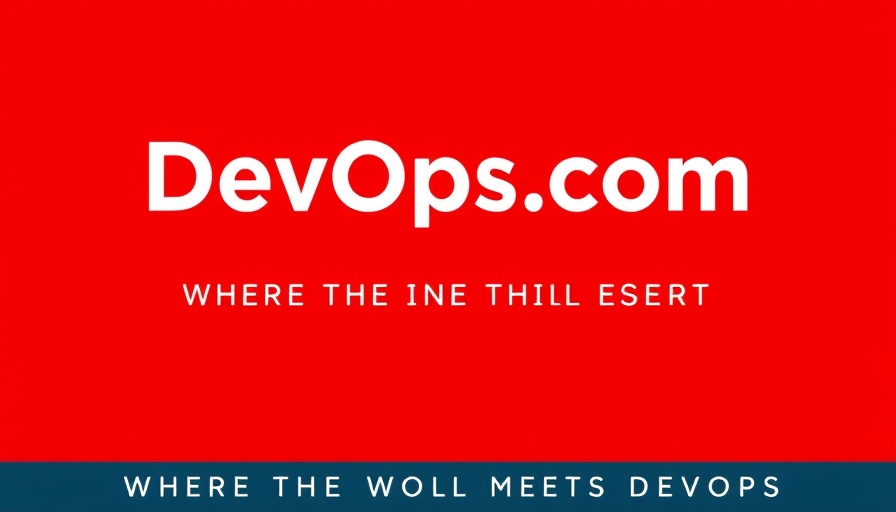
Unlocking the Potential of DevOps in Modern Software Development
As organizations increasingly adopt digital transformation strategies, understanding and implementing DevOps principles has become essential. DevOps, a combination of development and operations, aims to enhance collaboration between software developers and IT operations, ensuring swift and efficient delivery of applications. This article explores the significance of DevOps, especially through Agile frameworks, and its evolving relationship with security through DevSecOps.
Why Embrace DevOps?
DevOps is often hailed as a game-changer in the software development lifecycle. By fostering a culture of collaboration, organizations can break down silos between teams, leading to faster deployment times, improved quality, and higher satisfaction rates. In fact, studies indicate that enterprises that implement DevOps practices achieve up to 46% faster time to market.
Agile DevOps: A Perfect Match
Integrating Agile methodologies with DevOps principles can further enhance productivity and adaptability in software development. Agile focuses on iterative development and continuous feedback, while DevOps emphasizes operational efficiency and collaboration. Together, these methodologies facilitate a more responsive environment, enabling teams to react swiftly to changing market demands.
Introducing DevSecOps: Security at Its Core
As the reliance on technology increases, so does the importance of security. This is where DevSecOps comes into play. By incorporating security practices into the DevOps pipeline, organizations can ensure that security is a shared responsibility across all teams. This proactive approach not only helps in preventing vulnerabilities but also saves considerable time and costs that could be spent on remediation after deployment.
Real-World Applications of DevOps
Many successful companies have embraced DevOps to drive efficiency and innovation. For instance, organizations like Netflix have harnessed the flexibility of DevOps to deploy code changes thousands of times a day, allowing them to deliver new content and features rapidly. Similarly, Target's usage of DevOps methodologies has streamlined their operations, enhancing customer experience significantly.
Common Misconceptions about DevOps
Despite its widespread adoption, many misconceptions linger about DevOps. Some companies mistakenly believe that implementing DevOps requires extensive restructuring or specialized tools, while others think it is solely about automation. In reality, successful DevOps implementation hinges more on cultural change and collaborative practices rather than just technology.
Future Trends in DevOps
As technology continues to evolve, so will the practices surrounding DevOps. We anticipate seeing an increased focus on AI and machine learning integration within DevOps workflows, which will enhance analytics capabilities and provide deeper insights into operational performance. Additionally, the rise of low-code and no-code development will empower teams to streamline their processes further.
Take Action to Stay Ahead
In an era where speed and quality are paramount, embracing DevOps, Agile methodologies, and security practices like DevSecOps can turn your organization into a strong competitor in the market. Ensure your teams are well-equipped to tackle these transformational practices and stay ahead of the curve.
 Add Row
Add Row  Add
Add 




Write A Comment